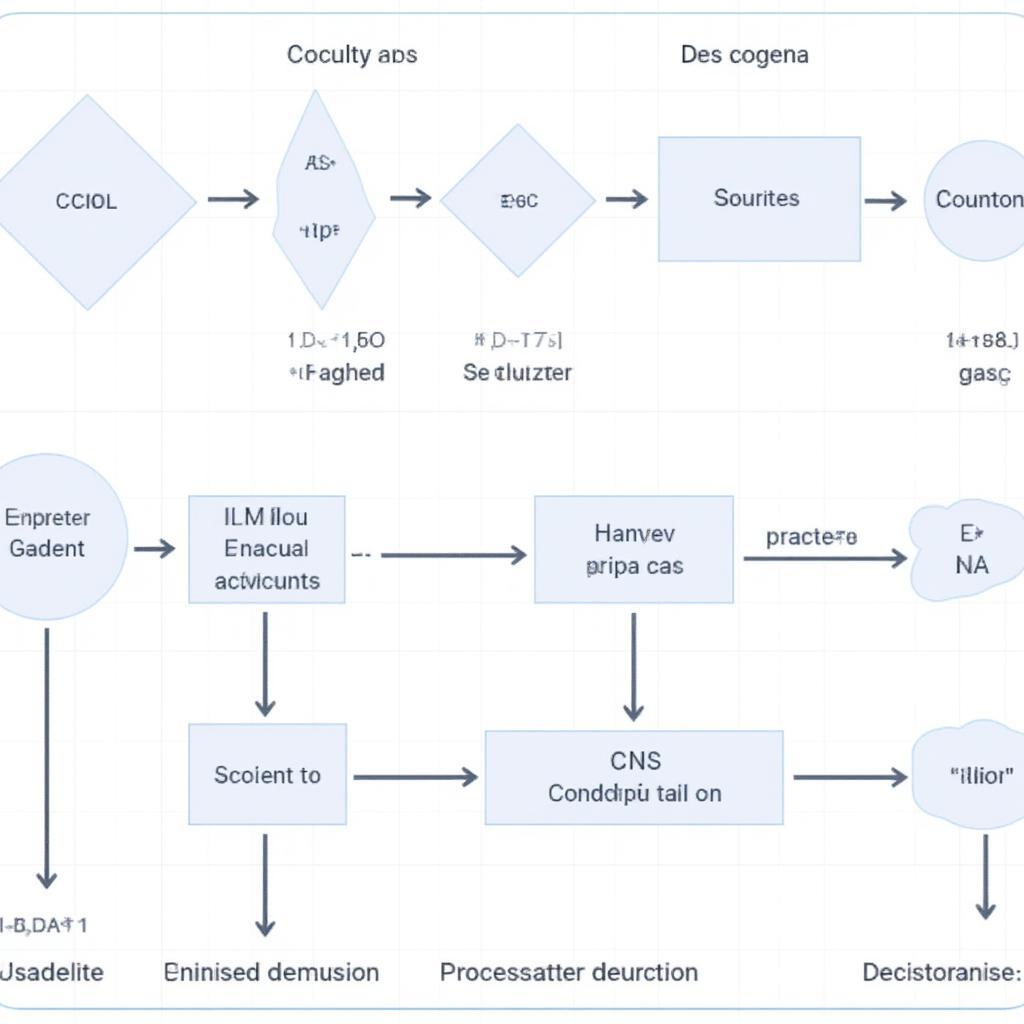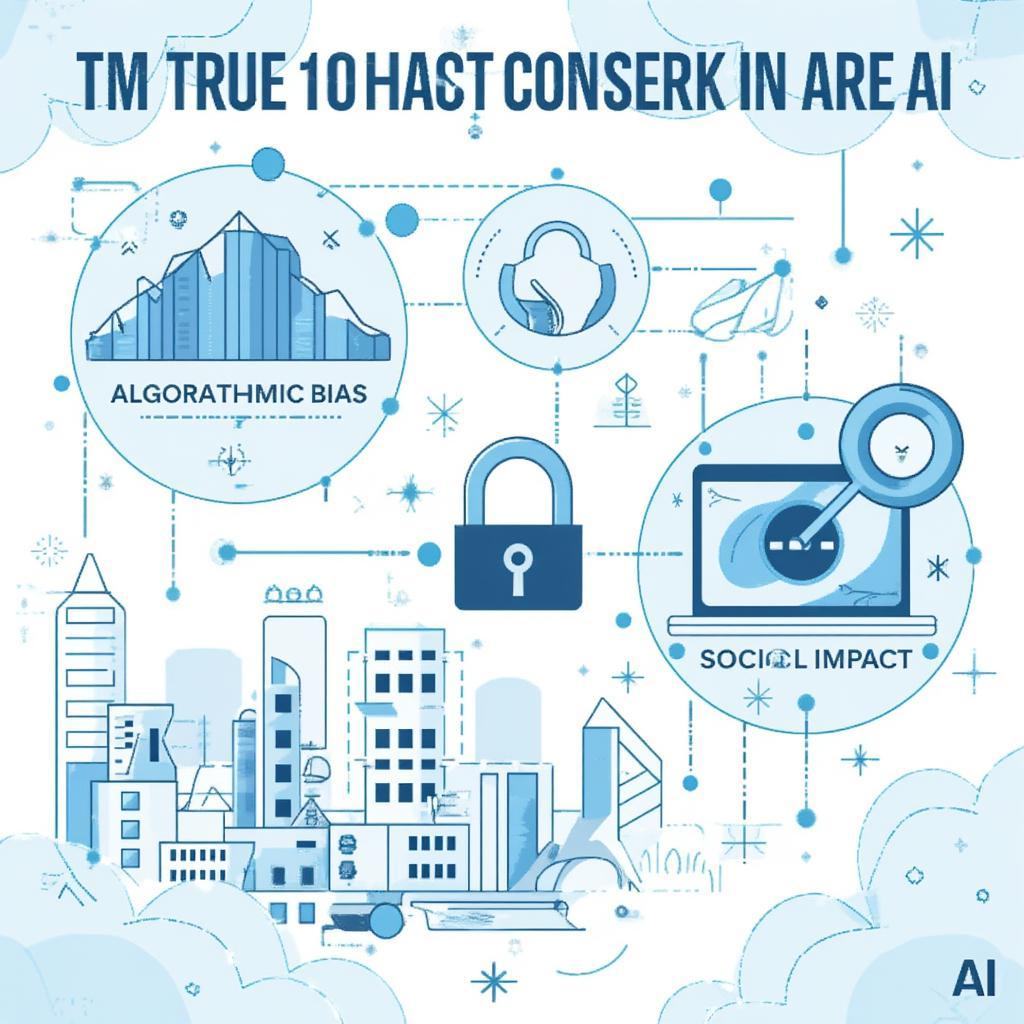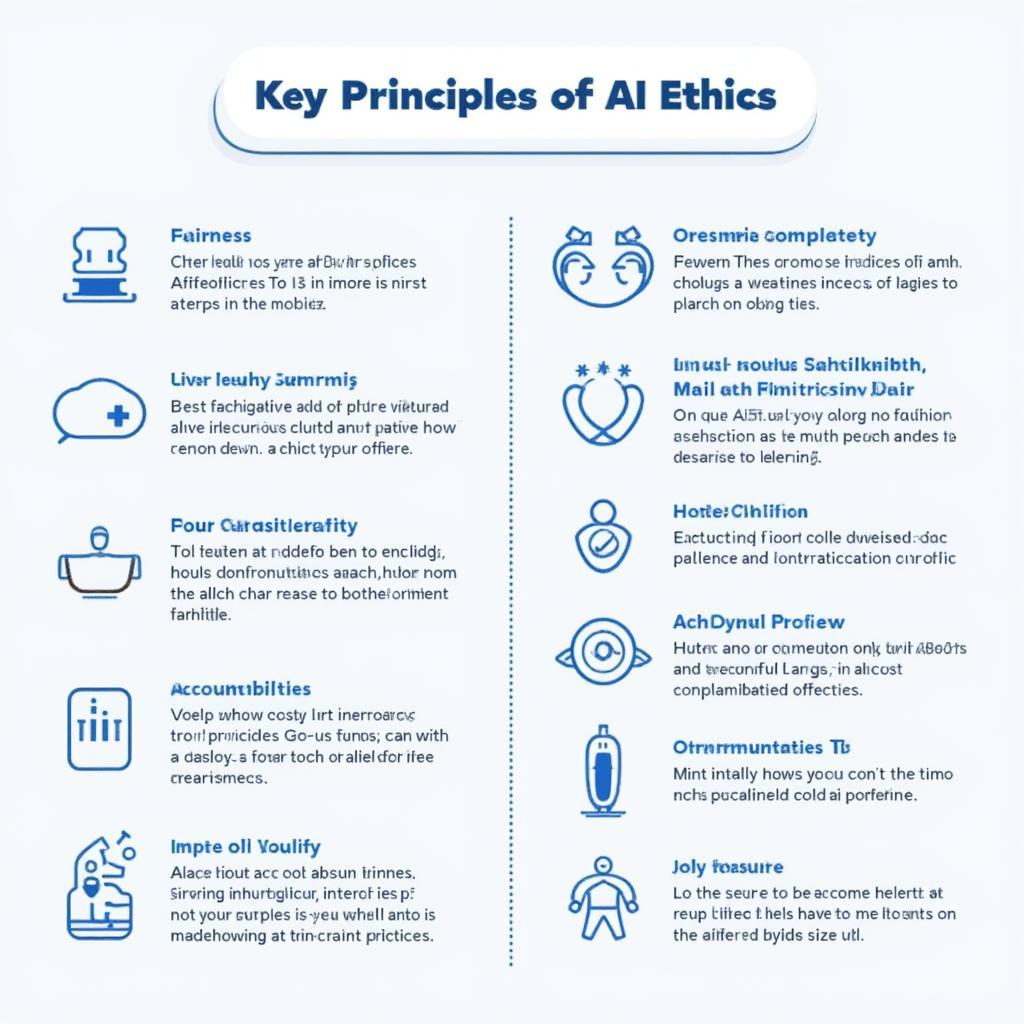Choosing the Right Artificial Intelligence Learning App: A Guide to Ethical Considerations

Artificial Intelligence Learning Apps are rapidly transforming the educational landscape. These powerful tools offer personalized learning experiences, adaptive feedback, and access to a vast amount of information. However, as with any technological advancement, it’s crucial to consider the ethical implications of using AI in education, especially when choosing an artificial intelligence learning app. This guide will delve into the key factors to consider when selecting an AI learning app, ensuring both educational effectiveness and ethical responsibility.
Similar to the conversational artificial intelligence, the rapid development and deployment of AI learning apps necessitate a careful examination of their potential impact on students, educators, and the broader educational ecosystem.
Key Considerations When Choosing an Artificial Intelligence Learning App
Navigating the world of AI learning apps can be daunting. Here’s a breakdown of essential factors to consider:
Data Privacy and Security in AI Learning Apps
What data does the app collect, and how is it used? This is perhaps the most critical ethical consideration. AI learning apps often collect vast amounts of student data, including personal information, learning progress, and even behavioral patterns. Ensuring this data is protected from unauthorized access and misuse is paramount. Look for apps that are transparent about their data collection practices and comply with relevant privacy regulations, such as GDPR and COPPA. Transparency is key; parents and educators should have a clear understanding of how student data is being utilized.
How secure is the app against data breaches? Cybersecurity threats are a real concern in today’s digital world. Choose apps that prioritize data security with robust encryption and other security measures.

Bias and Fairness in AI Algorithms
Are the algorithms used in the app fair and unbiased? AI algorithms are trained on data, and if that data reflects existing societal biases, the algorithm may perpetuate or even amplify those biases. This can lead to unfair or discriminatory outcomes for certain groups of students. Look for apps that are actively working to mitigate bias in their algorithms and promote fairness in education.
Does the app cater to diverse learning styles and needs? Every student learns differently. Ethical AI learning apps should be designed to accommodate diverse learning styles and needs, ensuring that all students have equal opportunities to succeed.
Transparency and Explainability of AI Systems
How does the app’s AI actually work? While the inner workings of complex AI algorithms may be difficult to understand, transparency is crucial. Choose apps that offer some level of explainability, allowing educators and students to understand how the AI arrives at its recommendations and decisions. This fosters trust and allows for meaningful feedback and improvement.
Can educators understand and interpret the AI’s feedback? AI-powered feedback should be actionable and understandable for educators. It shouldn’t be a black box; educators need to be able to interpret the AI’s insights to provide effective support to their students.

Teacher and Student Autonomy with AI
Does the app empower teachers or replace them? AI should be a tool to augment, not replace, teachers’ expertise. Ethical AI learning apps empower teachers with data-driven insights and personalized learning recommendations, allowing them to make informed decisions and provide more effective instruction.
Does the app promote student agency and critical thinking? While personalized learning is valuable, it’s important that AI learning apps don’t create overly structured or prescriptive learning paths. Students should be encouraged to develop critical thinking skills, explore their own interests, and make choices about their learning journey.
“The true power of AI in education lies in its ability to personalize learning and empower both teachers and students,” says Dr. Anya Sharma, a leading researcher in educational technology at the Institute for Future Learning. “Ethical considerations must be at the forefront of development and implementation to ensure equitable and beneficial outcomes for all.”
Accountability and Responsibility in AI Education
Who is responsible for the outcomes of using the app? Clear lines of accountability are essential. If an AI learning app makes an error or produces an unfair outcome, it’s important to know who is responsible and how issues will be addressed.
How can we ensure the ethical use of AI in education? Ongoing dialogue and collaboration among educators, policymakers, developers, and ethicists are crucial to navigating the complex ethical landscape of AI in education.
The Future of Artificial Intelligence Learning Apps
The field of AI in education is constantly evolving. As new technologies emerge, it’s essential to stay informed about the latest developments and continue to engage in critical discussions about the ethical implications of AI learning apps. You might also want to research the hype cycle for artificial intelligence 2022 to understand the current trends and future projections in the field of AI. For further learning on AI, consider exploring the best courses to learn artificial intelligence. If you are interested in a postgraduate degree, exploring options like an artificial intelligence pg course can provide a deeper understanding of the field. Investing in the future of AI might also lead you to consider artificial intelligence best stocks for potential long-term growth.
Conclusion
Choosing an artificial intelligence learning app is a significant decision with far-reaching ethical implications. By carefully considering factors such as data privacy, bias, transparency, autonomy, and accountability, educators and parents can help ensure that AI is used responsibly and effectively to enhance, not hinder, the learning experience. Remember, the ultimate goal is to harness the power of AI to create a more equitable, engaging, and empowering educational future for all learners. The right artificial intelligence learning app can be a powerful tool for educational advancement when ethical considerations are at the forefront of its selection and implementation.




